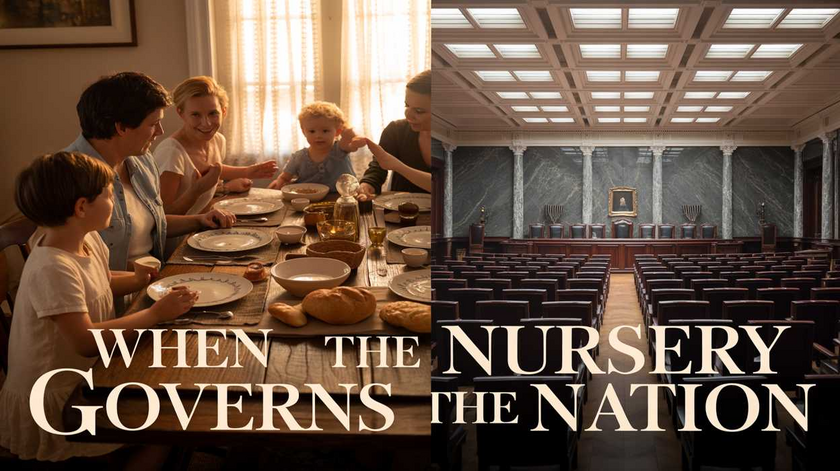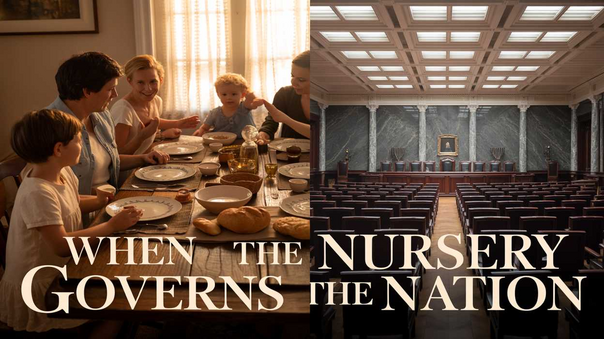
Do Men Face Prejudice?
A dissertation that reveals what the APA quietly overlook
The American Psychological Association likes to remind us that psychology should be guided by empathy, cultural awareness, and respect for lived experience. Few would argue with that. These values are written directly into the APA Guidelines for Psychological Practice with Boys and Men, published in 2018.
On paper, the Guidelines sound humane and thoughtful. They urge psychologists to be gender-sensitive, to avoid stereotyping, to understand the social contexts shaping boys’ and men’s lives, and to guard against bias that might harm the therapeutic alliance.
All good things.
But there is an important question we almost never ask:
What happens when those principles are applied fully and consistently to men — including the possibility that men themselves may be targets of prejudice?
A largely unknown doctoral dissertation from 2020 offers a surprisingly clear answer.
A brief introduction most people never received
In 2020, psychologist Aman Siddiqi completed a doctoral dissertation titled A Clinical Guide to Discussing Prejudice Against Men. It was submitted quietly, without media attention or controversy, and has remained largely invisible outside academic circles.
That is unfortunate — because it does something rare.
Rather than arguing politics or ideology, Siddiqi does something very simple and very professional:
He takes the existing psychological science on prejudice and asks whether it applies to men.
Not rhetorically. Clinically.
He does not invent new standards. He does not dismiss women’s issues. Instead, he asks whether psychologists may be overlooking an entire category of harm because it doesn’t fit the dominant narrative.
And in doing so, his work quietly exposes a tension at the heart of the APA Guidelines themselves.
What the APA Guidelines say — and what they assume
The APA Guidelines for Boys and Men emphasize several themes that many clinicians will recognize:
Boys and men are shaped by restrictive gender norms
Emotional suppression harms mental health
Masculinity can be socially reinforced in unhealthy ways
Psychologists should challenge stereotypes and build empathy
All of that may be true — as far as it goes.
But notice something subtle.
The Guidelines overwhelmingly frame men as:
Shaped by norms
Socialized into restriction
Influenced by expectations
What they almost never frame men as is this:
Targets of prejudice.
This matters more than it might seem.
Why “prejudice” is not the same as “socialization”
Siddiqi’s dissertation makes a distinction that is obvious once you see it — and strangely absent from much of clinical training.
Socialization asks:
“What messages did you absorb growing up?”
Prejudice asks:
“How are you perceived, judged, dismissed, or morally framed by others right now?”
These are not the same thing.
A man may be distressed not only because he learned to suppress emotion — but because when he does express vulnerability, he is:
Not believed
Seen as dangerous
Treated as less worthy of care
Assumed to be at fault
The APA Guidelines speak at length about helping men change themselves.
Siddiqi asks whether psychology has done enough to question how men are viewed.
That shift alone is quietly radical.
The empathy gap we don’t name
One of the strongest parts of Siddiqi’s work is his discussion of what he calls the male gender empathy gap — the tendency to respond less sympathetically to male suffering, especially when it conflicts with familiar narratives.
This is not framed as cruelty. It is framed as normalization.
Some prejudices persist not because people hate a group — but because dismissing that group’s suffering has become socially acceptable.
Siddiqi outlines several mechanisms that maintain this acceptability:
Trivialization (“It’s not that serious.”)
Denial (“That doesn’t really happen.”)
Justification (“There must be a reason.”)
Intimidation (“You can’t say that.”)
If you’ve worked with men long enough, you’ve heard these dynamics described — often haltingly — in the therapy room.
The APA Guidelines warn clinicians not to invalidate clients.
Siddiqi shows how invalidation happens when male distress falls outside approved frames.
When good intentions become blind spots
Perhaps the most uncomfortable implication of Siddiqi’s dissertation is this:
Clinicians themselves may unintentionally participate in prejudice against men — precisely because their training never gave them a framework to recognize it.
When a man describes feeling:
Disbelieved in a conflict
Treated as disposable
Assumed to be dangerous
Morally pre-judged
A well-meaning therapist may instinctively:
Reframe the experience
Redirect responsibility
Minimize the injury
Interpret it as defensiveness or entitlement
Not out of malice — but out of habit.
The APA Guidelines urge psychologists to be self-reflective about bias.
Siddiqi asks whether psychology has reflected deeply enough on its gender asymmetries.
A question the Guidelines never quite ask
The APA is comfortable naming androcentrism — male-centered bias — in culture.
Siddiqi raises a quieter question:
What happens when cultural sympathy flows primarily in one direction?
He uses the term gynocentrism not as an accusation, but as a descriptive lens — a way of understanding how concern, protection, and moral framing may cluster unevenly.
Whether one accepts the term or not, the phenomenon it points to is familiar to many men:
Female suffering is presumed legitimate
Male suffering is often contextualized, explained, or doubted
The APA Guidelines never directly address this imbalance.
Siddiqi does — calmly, clinically, and without rhetoric.
Why this matters now
In recent years, we’ve seen growing concern about:
Male loneliness
Male suicide
Boys disengaging from school
Men dropping out of institutions
Many responses still default to:
“Men need to open up.”
“Men need to change.”
“Men need better coping skills.”
Those may help.
But Siddiqi’s dissertation suggests something deeper:
If we never examine how men are seen, we will keep asking men to adapt to environments that quietly misperceive them.
The APA Guidelines aim to help boys and men.
Siddiqi’s work asks what those guidelines truly require — if we apply them without exemptions.
A final thought
This dissertation does not reject psychology’s values.
It takes them seriously.
And in doing so, it reveals a simple, uncomfortable possibility:
We may believe we are being fair to men — while still failing to see them clearly.
That is not an accusation.
It is an invitation.
And it is one psychology would do well to accept.


















